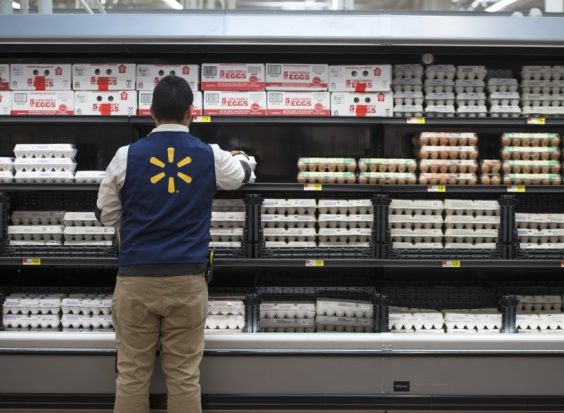
How much did you have to pay the last time you bought a dozen eggs?
Prices have been trending down in recent weeks, but at one time eggs were selling in stores at up to triple their usual price. So a group of California consumers is suing more than two dozen grocery chains, wholesalers and egg producers, accusing them of price gouging during the coronavirus pandemic.
The proposed class action suit denounces what it calls “the despicable and illegal practice of price-gouging of essential groceries, specifically eggs, in the midst of the ongoing and unprecedented pandemic.” Named in the suit are 15 egg producers and wholesalers, along with Walmart, Kroger, Albertsons, Whole Foods Market, Costco, Trader Joe’s, Amazon, WinCo, Raley’s, Stater Bros. and Save Mart.
Each of the ten plaintiffs say they, and the potentially millions of other shoppers they seek to represent, bought “grossly marked-up eggs” following the California governor’s declaration of an emergency early last month.
According to the U.S. Department of Agriculture, the California benchmark for wholesale large shell eggs is the highest in the country, peaking at $3.77 a dozen during the week ending April 3, up from $1.40 back in January. And that was just the wholesale price – the selling price in stores was even higher.
“As in any time of economic turmoil, there are those who seek to profit from the misery of millions,” the lawsuit reads. It accuses the defendants of “seeking to unfairly profit from the increased consumer demand for eggs in the midst of the ongoing crisis.”
At issue is a California price-gouging law that makes it illegal for anyone to increase the price of essential goods by more than 10%. “It is clear that some or all of the defendants have raised their prices to an extent that violates the law,” the lawsuit alleges.
There are exceptions to the law, however, if the cost of producing or transporting the product itself increases. And high egg prices could be a simple issue of supply and demand. During the initial surge of grocery shopping as everyone rushed to the stores to stock up, shelves were cleared as stores quickly sold out of staples like eggs, milk, disinfectants, and – as everyone knows by now – toilet paper. Egg producers say they were faced with higher costs, as they increased shipments to stores and were forced to divert their supply from shuttered restaurants and schools to grocers. And those costs were passed along to grocers, who passed them along to all of us.
But then why didn’t prices of milk, disinfectants and toilet paper rise at the same rate as eggs?
As a commodity with a short journey from farm to store, eggs are particularly sensitive to changes in supply and demand. “Eggs are naturally, very often, one of the most price variable products in the supermarket,” University of California, Davis agricultural economics professor Daniel Sumner told the Los Angeles Times.
The plaintiffs in the lawsuit are seeking an immediate injunction preventing the sale of eggs at a price more than 10% of their selling price before the state of emergency was declared. And they’re seeking an unspecified amount of restitution for all California shoppers who have purchased eggs since then.
According to the USDA, the wholesale price of California eggs is now down to $2.75 a dozen – still nearly twice their pre-pandemic price, but far below the high point several weeks ago. The good news is, as the price comes down, eggs are a lot easier to find in stores. Now if only you could say the same about toilet paper.
Image source: Walmart















